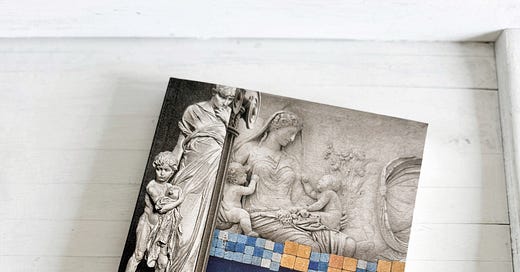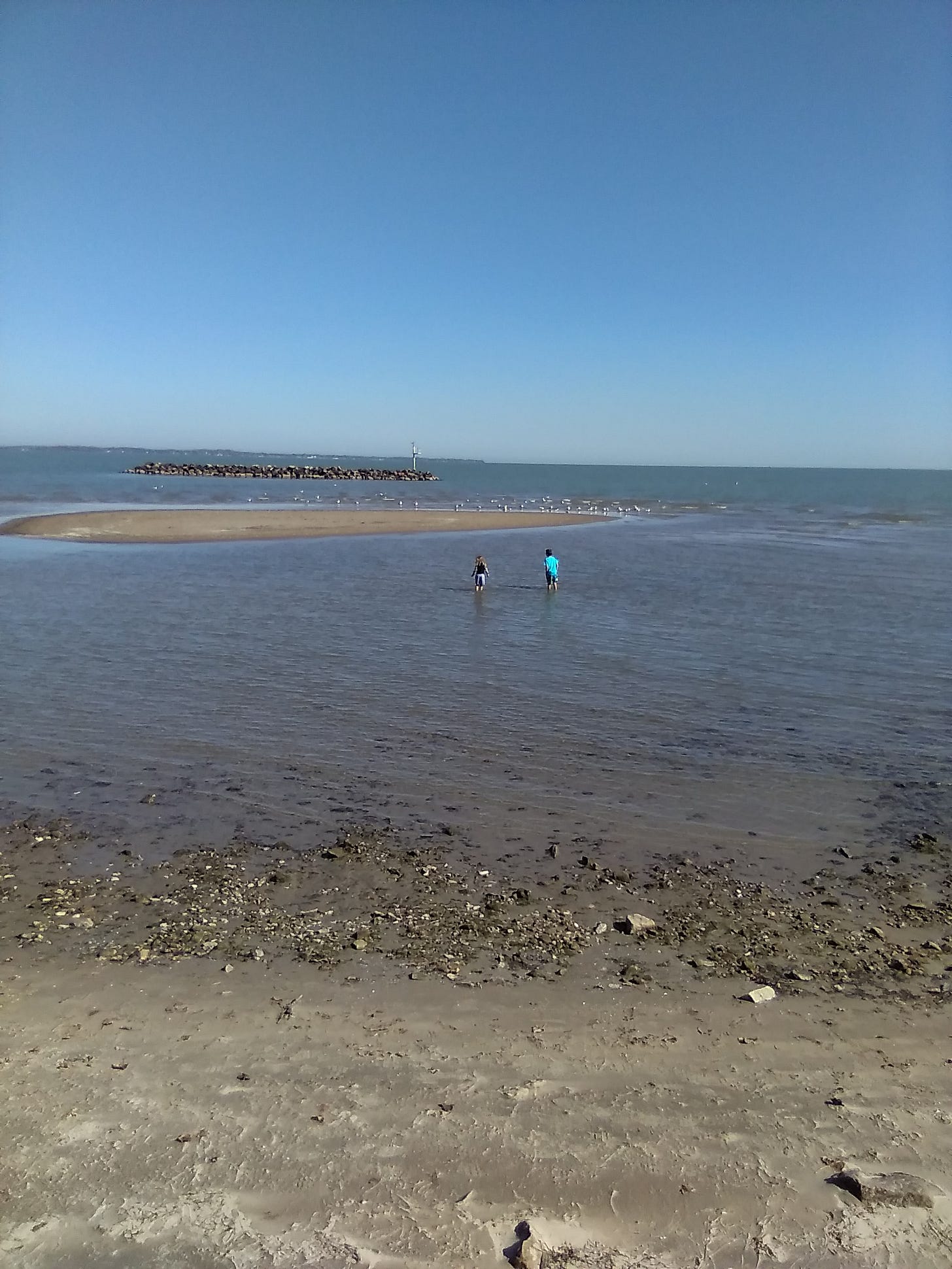Mothers, Children, and the Body Politic is out!
Two book excerpts, two interviews, and one book launch essay
But First, Fall Break!
Dan’s Fall Break was yesterday, so we declared a break for Williams Homeschool too! What should you do for fall break in the Midwest in October? Go to the beach, of course! So we drove a little over an hour to Marblehead Beach on Lake Erie and had the place mostly to ourselves.
As you can see in this photo, the 40-some-degree water did not deter our kids from getting in and playing for a good hour. Ah, to be young.
On to Book News
This week my second book launched into the world! My wise friend
asked: how does this feel? Honestly, leading up to book launch always feels strangely anxiety-provoking. The reasons seem shallow, on the one hand, but perhaps some of the fears are understandable. There’s a certain sort of vulnerability that goes with releasing one’s words into the world.Writing a book like this one, on something so personal, is a process no less emotional than intellectual. I want this book to do some good in this world and in the church. The devaluing of human beings—image bearers of God!—all around troubles me, and it should trouble all of us. But seeing the conversations about the book this week has been very encouraging in this regard. Sure, talk alone is cheap—but change begins with conversations.
I appreciated this interview about the book with my friend
at Current, and this interview with Abby J. Perry at Common Good Magazine.I love the excerpt from the book—about the plight of widows in the ancient world—that Plough chose to feature. Yes, the main focus of this book is mothers and children. And yet, my point throughout is that a society’s treatment of mothers and children reflects how it treats the vulnerable. And historically, widows have been some of the most vulnerable of all.
And here is another excerpt, in Public Discourse. It was a delight to see my book highlighted in so many publications I appreciate this week!
Finally, I appreciated the invitation from Common Good Magazine to write this book launch essay. It’s always a challenge to condense a book into an essay explaining what it is about, but here is a taste from my attempt:
In the increasingly post-Christian culture in which we dwell, mothers and children are devalued in thought, deed, and policy in ways remarkably similar to their treatment in Roman pagan culture. We are increasingly living in a world where people have forgotten the beautiful truth of the imago Dei — that every single person ever created was made in the image of God — and are choosing to live as though it is not true.
In this world, we see regular attacks on the worth of children and mothers who bear them and care for them in the media and in policy proposals. Consider, for instance, the repeated arguments from both liberal and conservative circles that mothers who choose to stay home to raise their children are a drag on the economy — and that motherhood hurts women’s careers. In these pronouncements, the economy and career are respectively elevated above family and children. The latter, in the process, become nonessentials, promoting the former to the role of primary-order goods.
Such attacks, though, are not to be considered in isolation. It’s not just that our society is unfriendly to mothers, children, and families more generally, as economist Tim Carney has argued. Rather, the attacks on the value of mothers and children are part of a larger problem; they are a canary in the mine, showing the erosion of valuing the lives of all image-bearers in a post-Christian world. This is why the promotion of anti-family views is related to the promotion of euthanasia in some countries, even if not in the United States quite yet.
In policies promoting “reproductive rights” or in those promoting “death with dignity,” the worth of people comes into question, evaluated often in financial terms. Are you “paying back” to family and society at least as many resources as you are consuming? By such utilitarian criteria, some people are invariably found wanting. By such logic, what is the point of bringing to birth and then keeping alive a child with Down syndrome? Likewise, what is the point of providing essential medical care for someone chronically ill? Or someone very old? The post-Christian perspective sees that such a person brings nothing of value to the community and does not deserve the waste of precious resources required to keep her alive. But such a view is nothing new. It is, in fact, very old…
…Christianity burst into the scene with a radically different anthropology — one that affirmed the priceless nature of every single human being for just one reason: because humanity was made in the image of God. Jesus spent his time on earth with the weakest, the sickest, the poorest — the ones who were worthless not only in the eyes of the Romans but of the Jews too. That is the anthropology that we need to recover today. Two thousand years of Christianity taught us to hate genocide and to treasure “useless” people.
You can read the full essay here.






I have started the second book by Dr N Williams. My reaction so far is wow 🤩. It is well written, well researched, & has both a passionate as well as a compassionate perspective. What more could a reader want in a book? I will slowly work through this book so that I can learn & savor it.
John C. Gardner